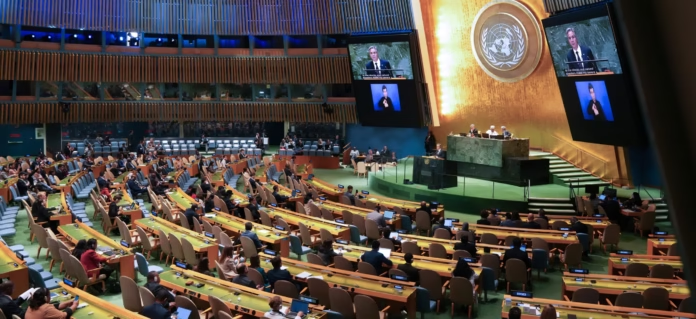Background
Since assuming office in May 2023, President Bola Ahmed Tinubu has positioned Nigeria as a central actor in Africa’s development and diplomacy. However, for the second consecutive year, he will not attend the United Nations General Assembly (UNGA) in New York, with Vice President Kashim Shettima leading the delegation. While delegation is not unusual, repeated absence raises fundamental questions about Nigeria’s foreign policy strategy, coordination, and decision-making process.
Key Observations
1. Emerging Pattern of Absence
• Occasional delegation can be justified, but consistent absence risks signaling disengagement from multilateral platforms at a time when Nigeria seeks expanded global influence.
2. Contradiction in Travel Priorities
• The President has undertaken extensive overseas visits — to France, Brazil, and St. Lucia — yet has avoided UNGA. This contrast creates uncertainty about Nigeria’s foreign policy priorities.
3. Strategic Costs
• Nigeria is campaigning for a permanent seat on a reformed UN Security Council and has historically played a leading role in articulating Africa’s position on climate change, debt, trade, and security.
• Absence from UNGA allows other African states to fill the gap, diluting Nigeria’s traditional leadership role.
4. Perception and Transparency Issues
• Limited official explanations (“domestic priorities”) leave room for speculation about health, political strategy, or an underestimation of multilateral forums.
• Lack of clear communication erodes both domestic confidence and external perceptions of Nigeria’s reliability as a diplomatic partner.
5. Missed Opportunities
• UNGA is not only symbolic but also functional: it provides unparalleled access to bilateral and multilateral negotiations on financing, security cooperation, and investment.
• Nigeria’s absence reduces its visibility in these arenas and may delay or forfeit opportunities for concrete agreements.
Critical Policy Questions on Foreign Policy Coordination
Beyond the President’s individual choices, these repeated absences raise deeper concerns about Nigeria’s institutional approach to foreign policy:
• Who advises the President on foreign policy priorities?
Is there a structured advisory process guiding his engagement with multilateral institutions?
• What role does the Ministry of Foreign Affairs play?
Does the Ministry provide input into which international forums the President should prioritize, especially when national interests are at stake?
• What about the National Intelligence Agency (NIA)?
Given its mandate, does the NIA feed strategic assessments into the President’s foreign policy decisions, including the implications of missing UNGA?
• Who organizes and approves the President’s foreign trips?
Are these coordinated by the Presidency alone, or shaped in consultation with Nigeria’s professional diplomatic corps and security agencies?
• Is Nigeria’s foreign policy becoming overly personalized?
The pattern suggests that bilateral trips may be chosen for convenience or optics, while multilateral platforms — where rigorous engagement and negotiation are unavoidable — are deprioritized.
Conclusion
Nigeria’s population size, economic weight, and security role give it special responsibilities in global governance. Sustained presidential absence from UNGA risks weakening Nigeria’s credibility, influence, and bargaining power. The issue is not only the President’s absence but also the apparent lack of institutional clarity on how foreign policy decisions are made and who shapes them.
For Nigeria to safeguard its diplomatic capital, there must be:
• Clearer coordination between the Presidency, Ministry of Foreign Affairs, and intelligence community.
• Transparent communication of foreign policy priorities and rationale for travel choices.
• A deliberate strategy that balances bilateral engagements with consistent multilateral participation.
Failure to address these gaps risks Nigeria retreating from the multilateral stage at precisely the moment Africa needs stronger representation.



